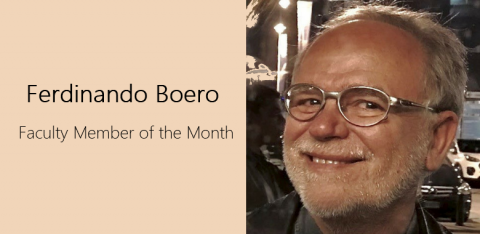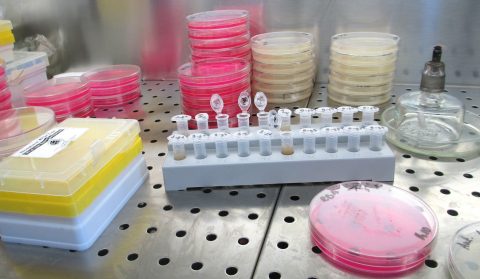This in the first post from our new guest blogger Sarah Kearns, a PhD student at University of Michigan, where she gives her views on collaboration. She discusses what’s needed to create a collaborative environment and what barriers currently exist
John Sayer is a Clinical Professor of Renal Medicine, Newcastle University and runs the Renal Genetics Service and Family Renal Genetic clinic at Newcastle Upon Tyne Hospitals NHS Foundation Trust. He published a case report including both the clinical and patient perspectives to think about the consequences of analysing genes to discover the underlying cause of disease, and the impact such a genetic diagnosis has on the patient and their family.
Ferdinando Boero is May’s featured Faculty Member of the Month. He shares with us two of the most influential people for his research, Charles Darwin and Frank Zappa.
Social media has become prolific in everyday life and allows the instantaneous sharing of information, which can include health care information. The authors of a Research Note published on F1000Research suggests as medical vocabulary becomes more prevalent on social media that more comprehensible language should be used. In this guest blog, Farris Timimi, cardiologist, Medical Director of the Mayo Clinic Social Media Network and well-known health care Twitter user gives his view on this.
João Peres writes our first ‘F1000Workspace Release Notes’ post where we let you know what we’ve been working on and how we hope our new features will help you in your work.
A recent Opinion Article by Jan Voskuil, Aeonian Biotech, discussed the challenges in validation of research antibodies. It was openly peer reviewed by Michael Weller, Federal Institute for Materials Research and Testing (BAM), Germany. In this blog, both discuss these challenges, the reproducibility crisis and open data.
On Friday and Saturday this week, the 14th Médecins Sans Frontières (MSF) Scientific Days programme will kick off in London at the Royal Society of Medicine. These events are followed by a day in New Delhi, India on May 27th and in Blantyre, Malawi on June 22nd. Sarah Venis from MSF lets us know what we can expect at the London event
Nick Riddiford is a postdoc in developmental biology in Institut Curie in Paris. Last year he surveyed scientists to find out more about their working practices. He published his results on F1000Research as a research article. He explains more here about why he carried out the survey and what he thinks needs to change.
This week is Mental Health Awareness Week, and the Mental Health Foundation hopes to improve the wellbeing and mental health of Britain, after their survey revealed that the nation’s state of mental health is poor and appears to be deteriorating.
As the Foundation is investigating ways to prevent mental health and enhance society’s mental state, I thought I would investigate some of the research that has been recommended by our F1000Prime Faculty Members on the suggested influences and causes of mental illness, as well as possible treatments.
It is time to re-think how biomedical applications are built and adopt new strategies that ensure quality, efficiency, robustness, correctness and reusability of software components. Dr Luis Bastiao Silva explains how engaging end-users during the development process will help to ensure that software applications fit the needs of general clinicians and practitioners.


















